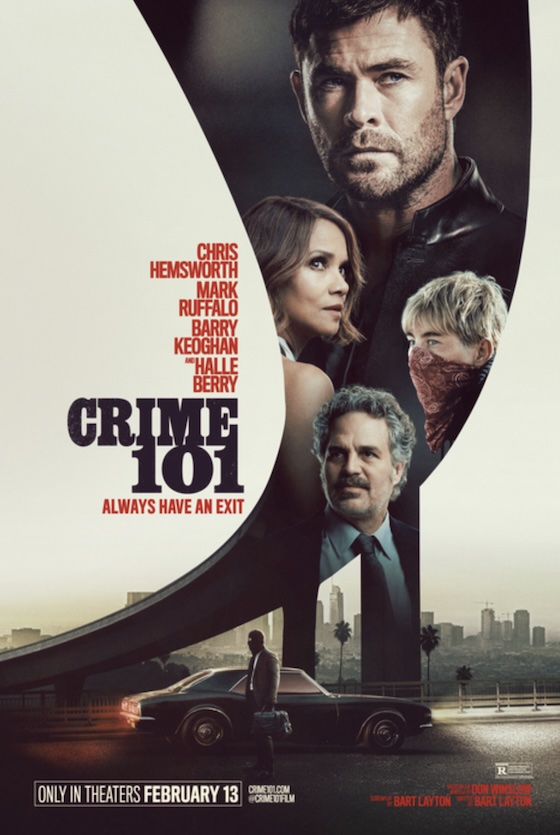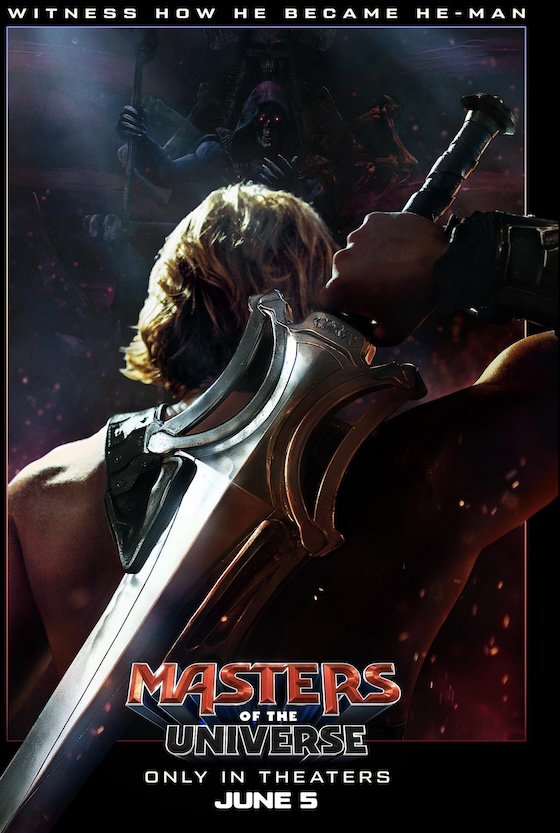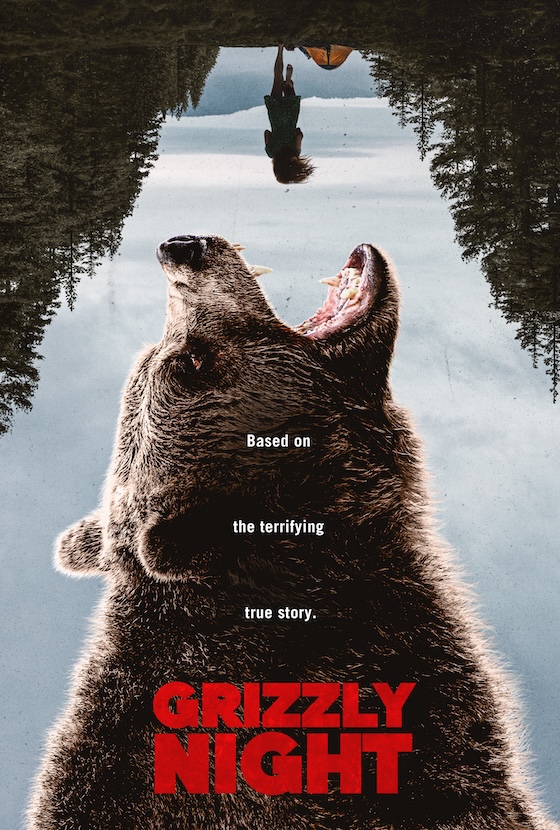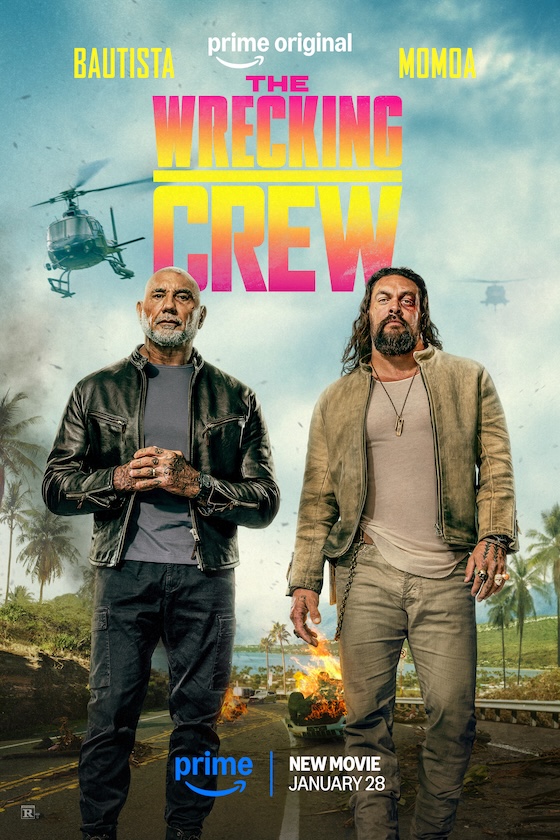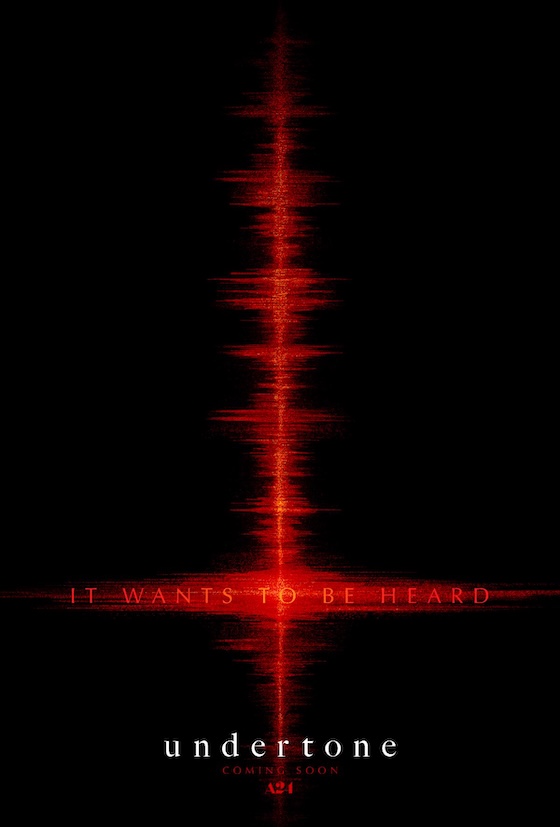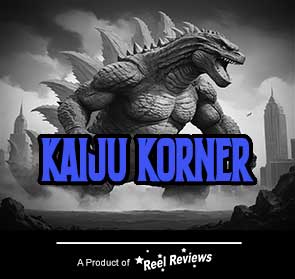
The journey begins with a series of hallucinations; a smoky reefer-saturated mess of colors that spiral out as the jungle setting is surgically snipped by the blades of helicopters crisscrossing the image. Then, the landscape suddenly explodes. Fireballs shoot up from the ground and the frame dissolves into the bleary eyes of a soldier. The Doors playing 'The End' off-screen accompanies the destruction. Madness. Pure madness…with nowhere but up into a funnel of smoke and char to go. Beginning with the now classic napalm blast that decimates a flat plane of jungle terrain, director Francis Ford Coppola, opens his statement that is Apocalypse Now as the whoop-whoop of the thundering chopper blades slowly dissolves into a slow moving ceiling fan.
It’s all a memory – a painful expression from the recesses of a broken mind – as a soldier awaits his next mission in a Saigon hotel. Captain Benjamin Willard (Martin Sheen) has no home - at least not anymore. He’s divorced and teetering on the edge of mental stability; ceremoniously punching mirrors containing his own reflection in an attempt to strike out against his guilt. He is the paradox; the afterbirth of blind faith. Affected by his tour of duty in Vietnam, Willard finds no home and no hope in America. The endless chase is his home; the hunt is now everything. And for that reason alone, Apocalypse Now is the most psychological of all of Coppola’s work.
A soldier no more, Willard, in a screenplay by John Milius, has become the quintessential detective assigned to slip into Cambodia and kill a decorated soldier gone psycho named Kurtz (Marlon Brando). He follows the “upriver” assignment without question – only documenting what he sees - not what he becomes - inside a film noir-like narration that saturates the audio with the hardboiled helplessness of a gnawing absurdity. His journey – and maybe only he knows this - will take him to the very edge of his own sanity, placating its mud-caked uneasiness with the flesh of those unfortunate soldiers assigned to the same river boat – actors Frederic Forrest, Albert Hall, Laurence Fishburne and Sam Bottoms - in its way.
The darkness that soaks through the landscape of Coppola’s shoot is only a hint of things to come for Willard and his companions. The light that shines through is saturated with the greasy smoke from flares and explosions and the limited spark of fireworks – even the high-strung bulbs the sexy Playmates supply the men don’t last for long in “the asshole of the world”. Based on the engrossing novel “Heart of Darkness” by Joseph Conrad, Milius’s narrative is part Vietnam ravishes and part jungle journey. Both – no matter the choice in interpretation - find Willard crossing a savage land without any hope of a merciful God. Voices of the faceless enemy echo through the pitch black nights, bombs and purple haze-filled bongs are hit in the hopes of providing some alleviation, yet, with no one in charge of the illogicalities surrounding them, it seems Kurtz might be the sanest man alive. He's definately the film's acting Father Figure.
In spite of the lunacy choking his very breath, Kurtz took charge. He tamed the loose tiger in the jungle. He even found himself some paparazzi in the non-stop talking American Photojournalist known only as Green Beret (Dennis Hopper). Beret’s enthusiasm for Kurtz’s power to “enlarge” one’s “mind” is certainly a fully fleshed glimpse at the madness inherent in a cynical society reflecting on the poetry of its past. Hopper is the court jester – the neo-romantic harlequin – performing figurative cartwheels and back flips for his own amusement upon Kurtz’s stage – enjoying the limelight before everything burns to the ground.
Yet, the shifting landscape – the juxtaposition of ideas – is only part of the brilliance of Apocalypse Now. It’s a brutal film, filling the cinematography from Vittorio Storaro’s camera lens with surreal images that challenges the preconceived notion of what a “war” film should look like – eventually weaving perplexing movement into each narrative passage that somehow makes sense. Coppola’s film – his last true masterpiece – isn’t comfortable with the label of just being a war film. It isn’t solely about war. It can’t be. Not when Colonel Killgore (Robert Duvall) mixes his Patton-like charisma with brazen pop culture sensibilities. He’s equal parts friend and stranger, but certainly memorable with his “Charlie don’t surf” comments and Napalm-sniffing nose. There’s poetry to his colorful garb, even if he doesn’t get to surf the six-foot waves surrounding the Viet Cong village and blast Wagner at the same time. Yes, Apocalypse Now is so much more than a simple war film. Bucking sentimentality, Coppola gives us a confrontation between murder and guilt, setting it on the peripherals of an unending war, but playing itself out more like a work of detective fiction.
Trumping reason alone, Coppola’s film serves to bring us closer to the ugliest parts of ourselves; the brutal indulgences of human conquest. We are – like Willard – a two-faced monster barking at others while hiding from ourselves. He discovers truths he probably didn’t want to uncover. The horror of the dead-end journey does this. Just like a turned-loose dime, there are two sides to our humanity – one the cares and one that kills. The truest side will also turn on itself – this is the ‘Apocalypse’ in our hearts. The ‘Now’ is of our own choosing.
There are no unsound politics to be discovered here about the Vietnam conflict. That’s not its purpose. it accepts that war happens. Coppola’s film gets its legendary status from its story that complicates the setting with natural purpose: one character vs. another. Kurtz and Willard are two differences that couldn’t be more alike. This is a classic film noir scenario not unlike simple shadow play from flickering camp fire light. The narrative complication comes when we realize – after watching the horror surrounding them which sees the idea of “nirvana” getting airlifted out of the jungle - how easy it would be to slide from one man's conscience to the other. We are the myth of Kurtz. We are the meaning behind Willard. For war-torn debtors and errand boys, Apocalypse Now is the only true statement that could possibly be made that both halves of our sordid humanity could ever understand. Yet, Willard and Kurtz don’t agree on their methods, suggesting an monumental encounter whose darkened dénouement will rock the very foundation of your soul.
Apocalypse Now isn’t the recreation of experience, it is the experience. It’s epic filmmaking that has yet to be toppled by any working director. Hollywood references it all of the time – in surprising ways sometimes – but, as a whole, nothing since its premiere dares match the eloquent statement Coppola made back in 1979.



![]() Apocalypse Now Final Cut 4K SteelBook® Reprint - Napalm Sunrise Edition 6-Disc Set
Apocalypse Now Final Cut 4K SteelBook® Reprint - Napalm Sunrise Edition 6-Disc Set
Home Video Distributor: Liionsgate Limited
Available on Blu-ray - December 17, 2024
Screen Formats: 2.39:1
Subtitles: English; English SDH; French; Spanish
Audio: English: Dolby Atmos; English: Dolby TrueHD 7.1; English: Dolby Digital 2.0
Discs: 4K Ultra HD; Blu-ray Disc; six-disc set
Region Encoding: 4K region-free; blu-ray locked to Region A
Physical media may not yet be dead, but with many retail brick and mortars shuttering disc sales this past year, the DVD, blu-ray, and 4K UHD disc segment of show biz is unquestionably on life support. Will the efforts of physical media nerds and specialty disc collectors be enough to keep motion picture studios and streaming execs from pulling the plug? Only time will tell.
In the meantime, a promising bit of news comes down the pike from Lionsgate who recently launched Lionsgate Limited, a “new premium home entertainment platform of curated specialty releases, including some of the greatest movies of all time.” The company celebrates the artistry of film with premium, limited-edition releases curated from Lionsgate’s expansive entertainment library.
The good news is that one of the first products out of the chute for this new venture is the Apocalypse Now Final Cut 4K SteelBook Reprint - Napalm Sunrise Edition 6-Disc Set.
The bad news is that this 4K Ultra HD + Blu-ray™ + Digital Copy SteelBook set is really nothing more than a repeat of the studio's 2019 40th anniversary 4K UHD release, save for the packaging which is, admittedly, pretty damn cool. Lionsgate's description even calls it a "reprint," so yes, it is definitely a shameless cash grab. But, if you don't already own that prior release, you'll want to pick this one up, if not only for the super-primo packaging concept, then certainly for the fully restored "Final Cut" 4K version of the film. Copies remain available at the Lionsgate Limited store at the time of this writing. A Quick Look at availability of Lionsgate's recent release of the Limited Edition of Coppola's The Conversation are sold out, so you might want to get on that while you still can.
Included are The Final Cut, '79 original, and the Redux versions of the film. Enjoy!
VIDEO
Let's get straight to what you want to know. Yes, the 4K UHD 2160p 2.39:1 restoration is absolutely stunning with a noticeable uptick in quality over the 1080p! Some fans have reported minor nit picks, mainly regarding inconsistent film grain throughout with the 1080p transfers, but not noticeable on the 2160s. You will not regret upgrading.
What a great film to feature in the spectacle of 4k! If you've only watched the 480p DVD or even some broadcast-TV highly compressed versions of the film, you will be blown away by the new restoration which adds major depth to many of the scenes, and a noticeable color gamut uptick throughout as well.
AUDIO
Available are Dolby Atmos, Dolby TrueHD 7.1, and Dolby Digital 2.0 tracks for all three films. And what great films to listen to with the Atmos tracks. Your room will shake, rattle, and roll with a near constant auditory assault from helicopter rotors, fiery explosions, M-16 gunfire, and the screams of soldiers calling for their mothers. It descends on the room from all directions, putting you right in the middle of harm's way. One particularly enjoyable moment, not surprisingly, is the "Ride of The Valkyries" scene that hits with a 360-degree fury you'll never forget. The single best 5-minutes in movie history... period!
Supplements:
Commentary:
- See below for details
Special Features:
Nothing new, but included are all the previous bonus items which amount to more than 5 hours of features, including featurettes, cast & Crew interviews, audio commentaries, photos, a "Hearts of Darkness" piece, and more.
UHD Disc One
- Final Cut (2160p; 3:01:58)
- Introduction by Francis Ford Coppola (UHD; 4:23)
4K UHD Disc Two
- 1979 Theatrical Version (2160p; 2:27:11)
- Apocalypse Now: Redux (2160p; 3:16:03)
- Audio Commentary by Francis Ford Coppola is available on the Redux Version only.
Special Features from Apocalypse Now and Apocalypse Now Redux
- An Interview with John Milius (1080p; 49:45) features Francis Ford Coppola as Milius' conversation partner.
- A Conversation with Martin Sheen and Francis Ford Coppola (1080p; 59:26)
- Fred Roos: Casting Apocalypse (1080p; 11:44)
- The Mercury Theater On the Air: Heart of Darkness - November 6, 1938 (36:34) is an audio supplement. The Menu has a tiny but kind of ironically funny typo that I didn't repeat here.
- The Hollow Men (480i; 16:57)
- Monkey Sampan "Lost Scene" (480p; 3:03)
- Additional Scenes (480i; 26:28)
- Kurtz Compound Deconstruction with Credits (1080p; 6:06)
- The Birth of 5.1 Sound (480i; 5:54)
- Ghost Helicopter Flyover (480i; 3:55)
- Apocalypse Now: The Synthesizer Soundtrack by Bob Moog is a reproduction of a magazine article.
- A Million Feet of Film: The Editing of Apocalypse Now (480i; 17:57)
- The Music of Apocalypse Now (480i; 14:46)
- Heard Any Good Movies Lately? The Sound Design of Apocalypse Now (480i; 15:22)
- The Final Mix (480i; 3:09)
- Apocalypse Then and Now (480i; 3:44)
- 2001 Cannes Film Festival: Francis Ford Coppola (1080i; 38:35)
- PBR Streetgang (480i; 4:09)
- The Color Palette of Apocalypse Now (480i; 4:06)
Hearts of Darkness Plus New and Archival Special Features
- Hearts of Darkness: A Filmmaker's Apocalypse (1080p; 1:36:00) features an optional commentary by Francis Ford Coppola.
- Tribeca Film Festival Q & A with Francis Ford Coppola and Steven Soderbergh (1080i; 47:34)
- Super 8mm Behind the Scenes Footage (1080p; 21:39)
- Dutch Angle: Chas Gerretsen and Apocalypse Now (1080p; 31:44)
- Apocalypse Now: Remastering a Legend in Dolby Vision and Dolby Atmos (1080p; 2:50)
- Apocalypse Now: A Forty Year Journey (1080p; 2:21) is a fun tour through various previous home video incarnations.
- Sensual Sound Technology from Meyer Sound (1080p; 3:52) is kind of hilariously presented in Dolby Digital 2.0.
- John Milius Script Excerpt with Francis Ford Coppola (00:51) reprints pages from the script.
- Storyboard Collection is an image gallery.
Photo Archive
- Unit Photography (1080p)
- Mary Ellen Mark Photography (1080p)
Marketing Archive
- 1979 Teaser Trailer (1080p; 1:29)
- 1979 Theatrical Trailer (1080p; 3:56)
- 1979 Radio Spots (2:05)
- 1979 Theatrical Program (1080p) features images of the program.
- Lobby Card and Press Kit Photos (1080p)
- Poster Gallery (1080p)
| Movie |  |
|
| Video |  |
|
| Audio |  |
|
| Extras |  |
|
|
Composite Blu-ray Grade
|
||

MPAA Rating: R.
Runtime: 147 mins
Director: Francis Ford Coppola
Writer: John Milius
Cast: Martin Sheen; Marlon Brando; Robert Duvall
Genre: War | Military
Tagline: Francis Ford Coppola Presents.
Memorable Movie Quote: "It's pretty hairy in there. That's Charlie's point."
Theatrical Distributor: United Artists
Official Site: https://lionsgatelimited.com/products/apocalypse-now-napalm?variant=42589644685423
Release Date: August 15, 1979
DVD/Blu-ray Release Date: December 14, 2024.
Synopsis: A U.S. Army officer serving in Vietnam is tasked with assassinating a renegade Special Forces Colonel who sees himself as a god.





